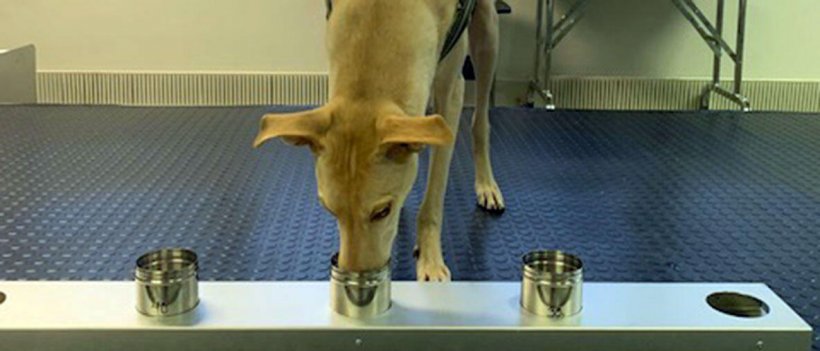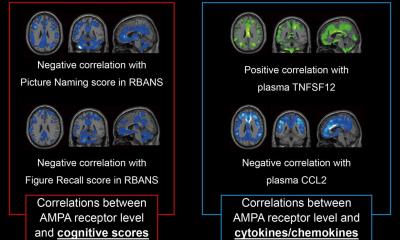
Image source: University of Helsinki; Photo: Susanna Paavilainen
News • Canine vs. coronavirus
Trained dogs can detect COVID-19 with their nose
The extremely sensitive olfactory sense of dogs might prove to become a groundbreaking new tool in the fight against the COVID-19. Trained medical scent detection dogs have previously worked with identifying different types of cancers.
Researchers at the veterinary and human medicine faculties at the University of Helsinki have now joined forces to identify COVID-19 infected individuals using canine scent detection. The first dogs that now have been trained, have succeeded in differentiating COVID-19 patient’s urine samples from urine samples of healthy individuals. "We have solid experience in training disease related scent detection dogs. It was fantastic to see how fast the dogs took to the new smell", says research and DogRisk-group leader Anna Hielm-Björkman.
Recommended article

Article • Breath analysis to aid diagnoses
Breathomics: far more than hot air
In diagnostics, it sometimes makes sense to follow your nose. During the Labmed Forum at Medica, Dr Beniam Ghebremedhin and Dr Simona Cristescu discussed the diagnostic potential of breathomics – the analysis of a patient’s exhaled air for disease indicators.
There are many things that have to be verified and re-verified before we are able to take scent detection into normal practice
Anu Kantele
The researchers are now starting a large collection of patient samples to ascertain the first observations and to be able to continue training more dogs. The researchers also need to clarify what the dogs are identifying in the patient samples and how long the smell stays after the infection has passed. Based on the preliminary tests, it seems that the dogs are able to learn and work fast and even perform better than the current COVID-19 tests that are based on molecular techniques. "There are however, many things that have to be verified and re-verified before we are able to take scent detection into normal practice. We will now re-test the dogs in our randomized double-blinded setting, introducing them to a larger number of patient samples that either have a positive, or a negative Corona result. Some of the negative samples will be healthy, while others will have e.g. other respiratory diseases", says Anu Kantele, Professor of infectious diseases at the University of Helsinki.
In the future, it could be possible to use trained COVID dogs in a multitude of beneficial tasks, e.g identifying infected individuals in nursing or retirement homes, screening true positives within the medical care sector to avoid non-necessary quarantines, and helping at custom check-points at airports and other border points.
Source: University of Helsinki
22.05.2020











